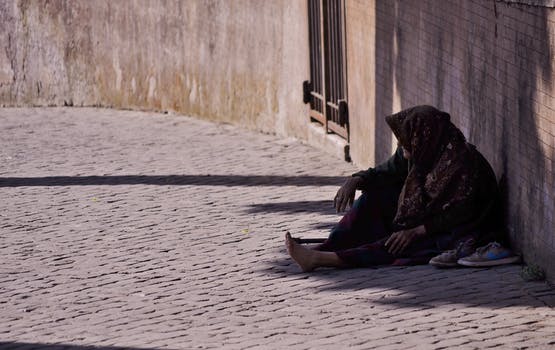Homelessness in Hungary: Orbán and Public Space

On 20th June 2018, the Hungarian parliament adopted a bill that criminalizes a range of lawful activities requiring state authorities to protect Hungary’s ‘Christian culture’. What this means in practice is the restriction of people’s ability to protest peacefully; undermining the independence of the judiciary and, finally, what I will be paying my attention to in this blog, criminalizing the homeless.
Public spaces, while ‘open and accessible to people’, are inevitably contested spaces in terms of how they are used and who they are available for. In the case of Hungary, prime minister Viktor Orbán decides what public space means - and his definition chooses to ignore international human rights standards as well as showing little regard to the needs of society as a whole.
“There’s no such human right that you can live on the street, because the street is for everyone. So you need at least certain rules” - Viktor Orbán
Orbán sees public space as ‘for everyone’ and for this reason he forbids the most vulnerable of society from sleeping there. In this dehumanizing way, he is setting these people apart from what he likes to call ‘normal’ society, propagating an ‘us’ and ‘them’ divide and taking no responsibility for the provision of solutions to help address these problems.
An amendment in the bill states that ‘it is forbidden to stay (or reside) in public spaces habitually’. Getting caught means facing fines that quite obviously cannot be paid and, as a result, the homeless are threatened with imprisonment.
What I want to ask is what ‘crime’ is it that these people have committed? For Orbán the crime is clearly, as UN special rapporteur Leilani Farha states, people ‘merely trying to survive.’
Somewhere in all this, it is clearly forgotten that homelessness is already a violation of human rights and dignity; no one should have to live on the streets. To be criminalized for being in this vulnerable situation is just wrong.
If the amendment was a promise to guarantee access to shelters and implement preventative homeless policies, as the government have said is the aim, then the result could be positive. But, with an estimated 11,000 places available for the homeless in state-run shelters and, according to many experts, 20,000 homeless people across the country, the numbers just don’t stack up.
This cruel use of force is a systematic effort to push the issue out from the cities and into unseen parts of the country where safety and access to help will be even harder to access for these vulnerable people. It is not a solution to homelessness; it is merely a stigmatization of the homeless.
So what should Hungary be doing? Well, not criminalizing people who cannot afford a place to sleep and who are, what Amnesty labels, ‘already some of the most disadvantaged and marginalized’ in society, while also ignoring international human right standards. Hungary should focus on preventative social policies and provide more temporary shelters, long-term housing solutions and support for people to get themselves out of this vulnerable position.
